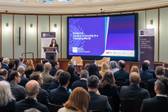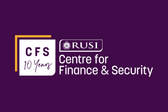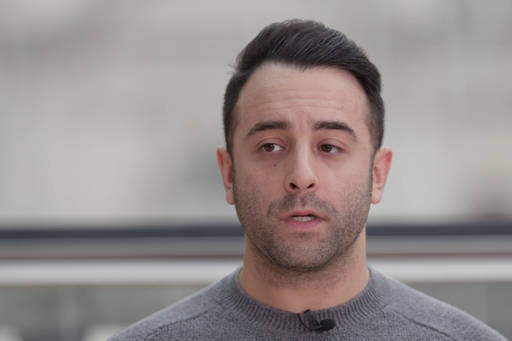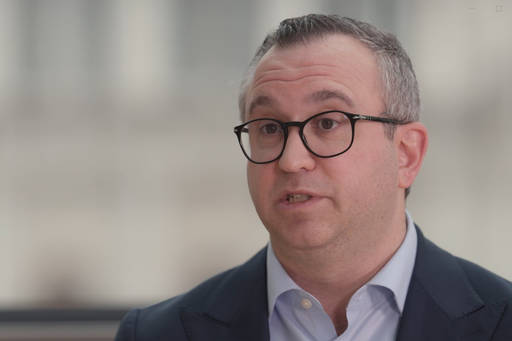Our analysis and actionable ideas aim to challenge the status quo and build resilience in the global response to illicit finance. Our work covers a range of state- and non-state-based security threats, which we examine through a financial lens across two primary areas:
- Financial Crime Policy: focusing on the development and implementation of effective anti-financial crime policies and regulation both in the UK and internationally; as well as engaging with global policy bodies such as the FATF and UNCAC.
- Sanctions, State Threats and Economic Security: examining the financial dimension of state threats and the weaponisation of finance as a tool of international statecraft in an increasingly fragmented geopolitical landscape, through the analysis of evolving trends and responses such as sanctions and the expanding focus on economic security.
Since the centre’s inception in 2014, the world of finance and security has expanded and become more complex. Terrorist financing has become tech-enabled, fraud and money laundering are more organised and transnational, the advance of cryptocurrencies has unlocked a new dimension for illicit finance, and the financial dimension of state threats is becoming more prominent at a time of fragmenting geopolitics.
Alongside our evidence-based research that provides solutions to some of the biggest challenges in the finance and security landscape, CFS also has a unique ability to convene policymakers, industry leaders, academics, and experts. This allows them to develop new networks and bring fresh perspectives to the key finance and security issues that the world is currently facing.
CFS experts are regularly called on to advise governments and international bodies, including the UN Security Council, the Financial Action Task Force, the UK and European Parliaments, and US Congress. Through our public engagements and events, we aim to highlight to wider audiences the pivotal role of finance in global security; and put our evidence-based research into practice through capacity-building and collaborative workshops.

Watch the session recordings from our inaugural conference hosting policymakers, law enforcement and private sector representatives to discuss how to tackle rising financial crime threats, make sanctions more effective, and create solutions that integrate responses to economic crime and illicit finance into the security landscape.
Programmes
The Centre for Finance and Security splits its research into two programmes:
Financial Crime Policy
This programme focuses on the development and implementation of effective anti-financial crime policies and regulation both in the UK and internationally.
Sanctions, State Threats and Economic Security
This programme focuses on sanctions, economic security, and the financial dimension of state threats.
Taskforces

The UK FATF Taskforce aims to support the UK in its preparations for its next mutual evaluation by the Financial Action Task Force (FATF).

The Taskforce aims to support the UK in strengthening the effective implementation and enforcement of sanctions and advancing a coherent future sanctions strategy.

The Taskforce examines the challenges facing the implementation and enforcement of maritime sanctions and aims to identify opportunities to improve their effectiveness.

The Taskforce aims to support the European Commission, EU member states, and key allies by bringing clarity to the policy dialogue on economic security.
Join our network
Support our work, join our CFS Partnership Forum and subscribe to our newsletter to stay up to date with our latest research.

Our partnership forum enables you to stay on the pulse of the latest policy and research developments, helping to inform your decision-making through unique insights, knowledge development and networking opportunities.

Launched by RUSI’s Centre for Finance and Security (CFS), the Forum aims at bringing together early career professionals from the public and private sector to intensify their presence and influence in the field.

Join us in disrupting the cycle of illicit finance and in creating a more secure and inclusive world. Make a one-off or recurring gift to help fund our CFS research programmes.
Our team
Tom Keatinge
Director, CFS
Centre for Finance and Security
Kinga Redlowska
Head of CFS Europe
Centre for Finance and Security
Robert Rogers
Finance, Bids and Grants Manager, CFS
Centre for Finance and Security
Kirsten Thompson
Business Development and Partnerships Manager, CFS
Centre for Finance and Security
Michelle Houghton
Programme Manager
Centre for Finance and Security
Kathryn Westmore
Senior Research Fellow
Centre for Finance and Security
Eliza Lockhart
Research Fellow
Centre for Finance and Security
Gonzalo Saiz Erausquin
Research Fellow
Centre for Finance and Security
Arzu Abbasova
Research Analyst
Centre for Finance and Security
Oksana Ihnatenko
Researcher for project SMURF, CFS
Centre for Finance and Security
Wojciech Pawlus
Outreach and Implementation Manager
Centre for Finance and Security
Vlada Yaremenko
Senior Project Officer
Centre for Finance and Security
Irina Mamulashvili
Russia Sanctions Implementation Project Officer
Centre for Finance and Security
Fellows
Olivia Allison
Associate Fellow; Independent Consultant
Vito Armonavicius
Associate Fellow - Expert in anti-money laundering and financial crime
Dr Aaron Arnold
Senior Associate Fellow; Former member of the UN Panel of Experts for DPRK sanctions
Centre for Finance and Security
David Artingstall
Associate Fellow; Independent Consultant
Karen Baxter
Senior Associate Fellow; Director, Financial Conduct Authority
Dr Katie Benson
Associate Fellow | SHOC Network Member - Researcher
Dr Anna Bradshaw
Associate Fellow; Partner, Business Crime Department, Peters & Peters Solicitors LLP
David Carlisle
Associate Fellow; Independent Consultant
Isabella Chase
Associate Fellow; Former CFCS Senior Research Fellow, RUSI
Chloe Cina
RUSI Senior Associate | Sanctions Lawyer
Emil Dall
Associate Fellow; Sanctions Lead at FINTRAIL
Jessica Davis
Associate Fellow; President and Principal Consultant with Insight Threat Intelligence
Gregory Dellas
Associate Fellow; Chief Compliance and Innovation Officer, ECOMMBX
Jan Dunin-Wasowicz
Associate Fellow; Partner, Hughes Hubbard & Reed LLP
Ian Dyson QPM
Distinguished Fellow; Former Commissioner, City of London Police
Edmund Fitton-Brown
Senior Associate Fellow
James Gillespie
Associate Fellow; Former Policy Advisor, HM Treasury
Ashlee Godwin
Associate Fellow
Sir David Green CB KC
Distinguished Fellow; Partner, Cohen & Gresser; Former Director, UK Serious Fraud Office
Justyna Gudzowska
Associate Fellow
Dr Ashley Hess
Associate Fellow
Kayla Izenman
Associate Fellow; Former CFCS Research Fellow, RUSI
Anagha Joshi
Associate Fellow; Independent Consultant
Xolisile Khanyile
Senior Associate Fellow
Olivier Kraft
Associate Fellow; Technical Assistance Adviser with the International Monetary Fund
Olivia Kearney
Associate Fellow
Aidan Larkin
Associate Fellow; Founder & CEO, Asset Reality
Professor Michael Levi
Senior Associate Fellow | SHOC Network Member - Researcher
David Lewis
Senior Associate Fellow
Erin Lubowicz
Associate Fellow
Andrew Mackay
Associate Fellow; Independent Consultant
Nick J. Maxwell
Associate Fellow; Director, NJM Research Ltd
Anton Moiseienko
Associate Fellow; Lecturer in Law, Australian National University
Robert Norfolk-Whittaker
Associate Fellow; UN Consultant
Allison Owen
Associate Fellow - Expert in cryptocurrency and counter-proliferation finance
Dr Marc Parker
Associate Fellow; Counter-terrorist financing expert
Matthew Redhead
Senior Associate Fellow; Financial crime consultant and researcher
Stephen Reimer
Associate Fellow
Gemma Rogers
Associate Fellow; Co-Founder, FINTRAIL Ltd
Denisse Rudich
Associate Fellow; Founder and Executive Director, Rudich Advisory
Sergii Rybchenko
Associate Fellow
Samantha Sheen
Associate Fellow; Financial Crime Adviser, Efficient Frontiers International
Dr Jason Shepherd
Senior Associate Fellow; Director, Analysis and Innovation, Thomson Reuters Special Services International
Jeffrey Simser
RUSI Senior Associate Fellow
Josie Stewart
Associate Fellow; researcher and writer, independent consultant and advisor.
Dr Noémi També
Associate Fellow; Independent Financial Crime Consultant and Researcher
BC Tan
RUSI Senior Associate Fellow
Dr Jodi Vittori
Associate Fellow; Research and Policy Manager, Defence and Security Programme, Transparency International
Helena Wood
Associate Fellow; Head of Public Policy at Cifas
Malcolm Wright
Associate Fellow; Financial Crime Compliance Advisor
Simon York CBE
Senior Associate Fellow; Former Chief Investigation Officer and Director, Fraud Investigation Service, HMRC
Ilze Znotiņa
Senior Associate Fellow
Publications
Access the latest publications and filter by topic, region and by project.
Loading results...
News
View all of the media mentions and news stories from CFS
Loading results...
















































































